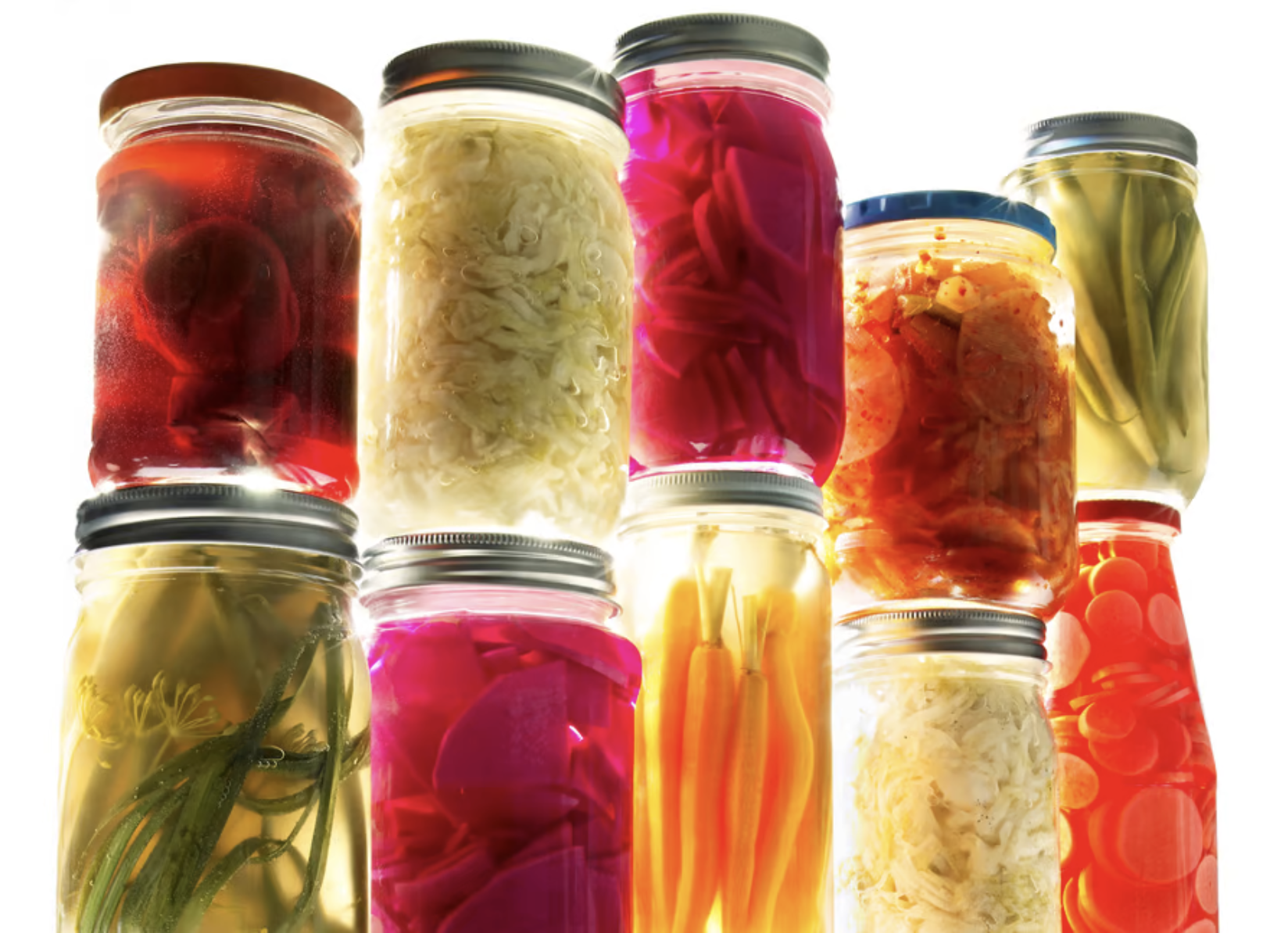Why You Need Fermented Foods On Your Plate
/Taking care of your gut (aka your digestive system, GI tract, etc.) is one of the most effective ways to completely improve your health. That’s because your gut affects every aspect of your well-being—from your skin and overall physical health, to your ability to age well and your mental health. (Seriously, it impacts everything.) Many people know that gut health is important, but they aren’t sure how to get started in tending to their gut. In this blog post, I talk about one of the most powerful tools you can use to do that…fermented foods!
A quick gut primer
As you may or may not know, your gut has its own microbiome. A microbiome is “the collection of all microbes, such as bacteria, fungi, viruses, and their genes, that naturally live on our bodies and inside us.” Keeping this microbiome diverse and full of healthy bacteria is crucial if you want a healthy digestive system and overall healthy body. Signs that your gut might be a little imbalanced include bloating, gas, constipation, diarrhea, abdominal pain, relentless acne, and headaches/migraines, to name a few. It’s hard to know if your gut is the root cause of whatever issue you’re dealing with, but everyone can benefit from extra gut attention and care!
Why fermented foods matter
Fermented foods offer a host of health benefits—they’re anti-microbial, anti-fungal, and anti-inflammatory, for instance. That means that they can boost our immune systems, help us fight off sickness, and keep our bodies’ inflammation levels low. Perhaps most importantly, though, fermented foods contain probiotics. More on that below.
Fermented foods contain probiotics
A key piece of a healthy microbiome is healthy bacteria—these are commonly called “probiotics.” When you see that a food contains “live cultures” or the ingredient list has long scientific names like “bifidobacterium animalis lactis” on it, that means that food contains probiotics! These foods/products almost always need to be refrigerated, because those bacteria are alive and they’re very sensitive to temperature, light, etc.
A few benefits of probiotics include:
Improved heart health
Boosted immunity
May help weight loss and belly fat
Improved skin health (acne, rosacea, etc.)
And much more!
List of my favorite fermented foods
When I say “fermented foods” to people, everyone always says “you mean like sauerkraut?” (Usually with a scrunched face, because not everyone likes it.) Yes, sauerkraut is often a fermented food, but that’s not the only one out there! Here’s a list of fermented foods I eat regularly for better gut health:
Kombucha (my favorite brand Healthade and GT’s)
Greek yogurt (Chobani, Fage, all of those. If you’re dairy-free, Coconut Cult is my go-to)
Kimchi (I love Mother In Law's Kimchi)
Sauerkraut (make sure this has active cultures, because some don’t)
Kefir (I like Wallaby)
Pickles (look for ones in the refrigerated section and specifically ones that have “fermented” on the label or bacteria strains in the ingredient list)
Tempeh
Miso (I use miso paste in my stir fries and sauces)
Sourdough bread
Cottage cheese (make sure this is fermented, my favorite brands are Good Culture and Nancy’s Good Cottage Cheese)
I recommend starting with 1 tbsp of probiotic foods, and slowly adding them to your diet. I can’t stress this enough: start slow! Too many probiotics can cause the opposite effects—aka bloating, constipation, etc. They are powerful, your body needs to get used to them. I started slow, and now most days I have ½ cup of sauerkraut with at least one meal a day. The benefits you can reap from probiotics are endless, so I can’t recommend them enough to all of you.
For more content like this, make sure to check out the Pure Joy Squad—our private community for women over 50!
Wishing you all the best week!
xo,
Renata

